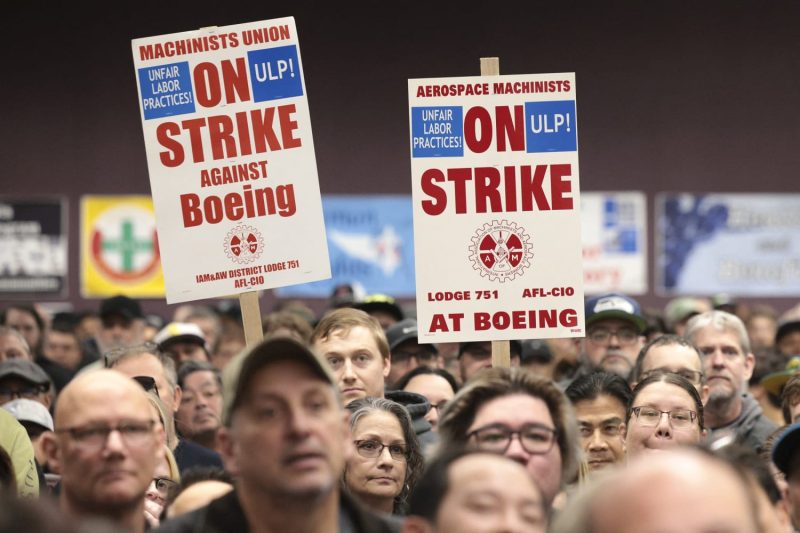The recent rejection of a new labor contract by Boeing machinists has led to a further extension of their strike, creating significant turbulence in both the aviation industry and the workforce. This development underscores the complex dynamics at play between labor unions and large corporations, with implications for worker rights, company profits, and broader economic considerations.
The standoff between Boeing and its machinists reflects the struggle for fair treatment and adequate compensation faced by many workers, especially in high-stakes industries like aerospace. Collective bargaining agreements are designed to negotiate these terms, but when workers feel that their rights are being undermined or that their livelihoods are at risk, they are willing to take a stand, as evidenced by the rejection of the contract in question.
The rejection of the labor contract by the Boeing machinists also raises questions about the power dynamics within the company and the willingness of workers to stand up against corporate pressure. In today’s global economy, where profit margins often take precedence over worker well-being, such displays of resistance are crucial in maintaining a balance of power and ensuring that workers are not exploited for the sake of corporate gain.
Moreover, the extended strike resulting from the rejection of the contract has practical implications for Boeing’s operations and its bottom line. Delays in production, disruptions to supply chains, and a tarnished reputation in the eyes of consumers are all potential consequences of prolonged strikes, highlighting the need for timely resolution and effective communication between labor and management.
The rejection of the labor contract by the Boeing machinists may also have ripple effects beyond the company itself, impacting the wider aerospace industry and potentially setting a precedent for future labor disputes. As workers around the world grapple with job insecurity, wage stagnation, and increased demands from their employers, the outcome of this strike could serve as a rallying cry for workers’ rights and a signal to corporations that fair treatment of employees is non-negotiable.
In conclusion, the rejection of the new labor contract by Boeing machinists and the subsequent extension of their strike are emblematic of the broader tensions between labor and management in today’s economy. The outcome of this standoff will not only shape the future of Boeing and its workforce but also send a powerful message about the importance of fair treatment, workers’ rights, and the need for a more equitable distribution of power in the workplace.
